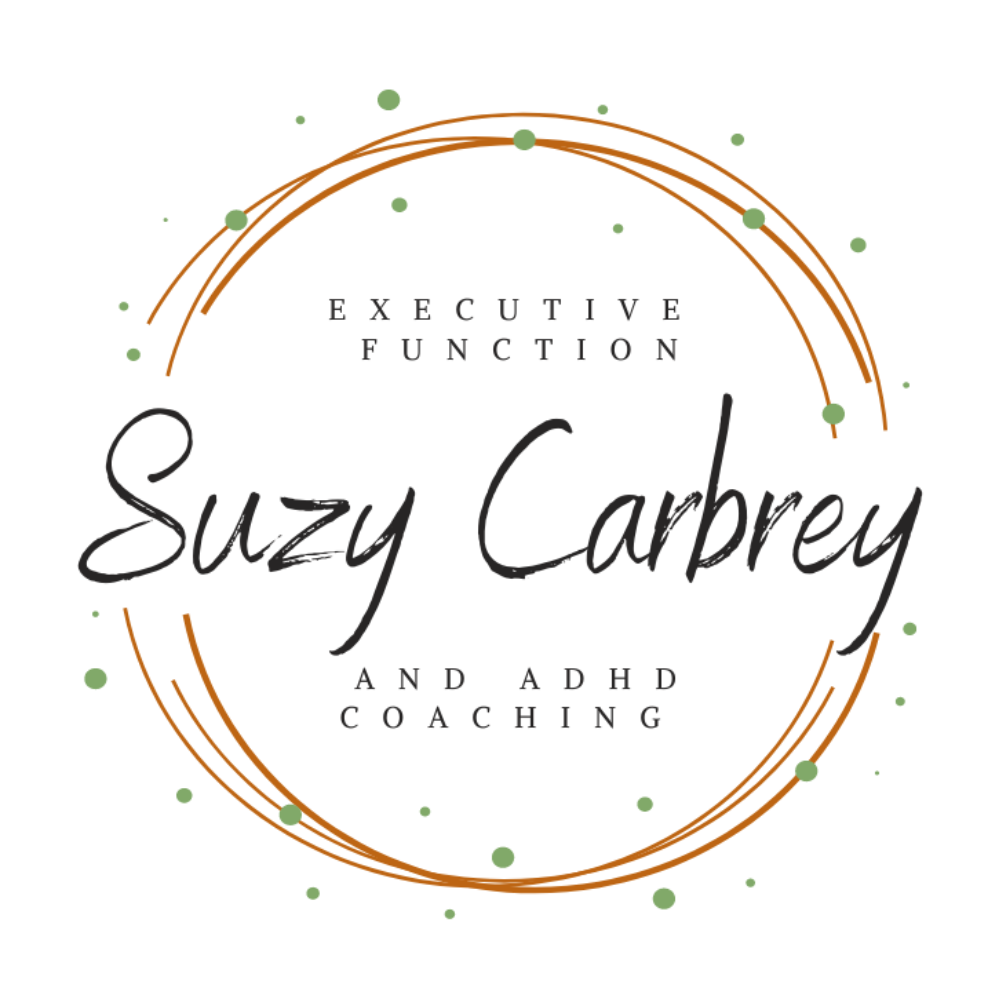Strategies for Tackling Motivation for Life’s Boring Tasks is written by Suzy Carbrey
INTRODUCTION OF TACKLING MOTIVATION
Living with ADHD is no small feat. It’s like navigating a bustling city without a map, where every turn presents a new challenge to overcome. One of the most common struggles for those with ADHD is grappling with motivation, particularly when it comes to those mundane, everyday tasks that seem to drain the life out of us. We’ve all been there – staring at a to-do list that feels more like a mountain to climb, while our minds are off chasing exciting ideas and shiny distractions. It can be frustrating, disheartening, and, quite frankly, exhausting. But, fear not! There are ways to conquer this motivation mountain and come out on top and tackling motivation.
In this blog post, we’ll dive deep into the world of ADHD and motivation, exploring the obstacles we face and offering practical tips to help you turn that mountain into a molehill. We’ll discuss the concept of embracing “good enough” and discover how it can be a game-changer in our quest for productivity. We’ll also delve into the importance of setting up supportive systems, and learn how to harness the power of a growth mindset and positive self-talk to coach ourselves towards success.
Understanding the Motivation Challenge
Let’s be real: motivation can feel like an elusive mythical creature when you have ADHD. Poor executive functioning, distractibility, and difficulty initiating tasks are just a few of the culprits that make those boring chores seem even more daunting. It’s essential to recognize that struggling with motivation is not a personal failing; it’s simply part of the ADHD package. Just like a car with a unique set of features, ADHD brains are wired differently, and that’s okay. By understanding the root of motivational challenges, we can begin to develop strategies that work with the unique wiring, rather than against it.
Imagine your ADHD brain as a high-performance sports car – it’s powerful, agile, and built for speed. But when it comes to those mundane tasks, it’s like driving that sports car on a bumpy, winding road with potholes. It’s not that the car isn’t capable; it’s just not optimized for that type of terrain. Now that we’ve got a better grasp on why motivation can be a challenge for ADHD brains, let’s explore practical strategies to navigate through these challenges with confidence and tackling motivation.

Practical Tips For Getting Things Done & Tackling Motivation:
Breaking Tasks into Smaller Steps
Large tasks can often feel overwhelming, leading to procrastination or avoidance. By breaking them down into smaller, more manageable steps, you can make the task feel less daunting and easier to tackle. This approach helps improve focus and makes it easier to get started. To do this, start by identifying the overall goal, then break it down into smaller sub-tasks. Make sure each step is specific, achievable, and has a clear outcome. This process can be applied to various tasks, from work projects to household chores, making it a versatile strategy for increased productivity when tackling motivation.

Using Visual Reminders and Timers
Visual reminders such as to-do lists, sticky notes, or calendar events can help keep tasks at the forefront of your mind. Placing these reminders in prominent locations, like your workspace or refrigerator, increases the likelihood that you’ll remember to complete the tasks. Additionally, setting timers or using time-tracking apps like the Pomodoro Technique can help maintain focus and provide a sense of urgency. This can be particularly helpful for those who struggle with time management or get easily distracted helping tackling motivation.
Use External Accountability
Sharing your goals with a trusted friend, family member, or coach can provide much-needed encouragement and accountability. Knowing that someone else is aware of your commitments can increase motivation to follow through and achieve your goals. Consider setting up regular check-ins with your accountability partner to discuss progress, challenges, and successes. This social support can be instrumental in maintaining focus and momentum.
Practicing the Pomodoro Technique
The Pomodoro Technique is a time management method that involves breaking your work into intervals, typically 25 minutes of focused work followed by a short 5-minute break. This technique can help prevent burnout, maintain productivity, and reduce the likelihood of distractions. By working in short bursts, you can improve your concentration and avoid mental fatigue. Additionally, taking brief breaks allows for mental rest and helps to maintain a consistent level of focus throughout the work session to help with tackling motivation.
Embracing “Good Enough”
Perfectionism can be a significant barrier to productivity for individuals with executive functioning challenges. Instead of striving for perfection, aim for completion. Recognize that sometimes, good enough is truly sufficient. Setting realistic expectations and accepting imperfections can alleviate unnecessary stress and pressure, allowing you to make progress on tasks more efficiently. This mindset can be particularly helpful in situations where the pursuit of perfection may cause delays or hinder progress when tackling motivation.
Using a Growth Mindset and Positive Self-Talk
Developing a growth mindset involves believing that your abilities and intelligence can be developed through dedication and hard work. When facing challenges or setbacks, instead of viewing them as failures, and see them as opportunities for growth and learning. This perspective can help you build resilience and maintain motivation. Additionally, positive self-talk can be a powerful tool for encouragement. Replace negative thoughts with affirmations such as, “I can do this,” “Every step I take brings me closer to my goals,” or “I am capable and resilient.” This practice can boost your self-confidence and enhance your overall well-being.

Establishing Routines and Rituals
Consistent daily routines can provide structure and reduce decision-making fatigue. Identify specific times for tasks such as meal preparation, exercise, and leisure activities to create a sense of predictability and stability. By following a regular schedule, you can automate certain aspects of your day, freeing up mental energy for more complex tasks. Additionally, tackling motivation helps establishing rituals for specific tasks, like a morning routine to start the day, can help set the tone for productivity and focus.
Delegating When Possible
Recognize that you don’t have to do everything yourself. Delegating tasks to family members, colleagues, or professionals when appropriate can help you focus your energy on activities that align with your strengths and priorities. Start by identifying tasks that others can handle and clearly communicate your expectations and deadlines. Trusting others to contribute can create a more efficient and collaborative environment, allowing you to prioritize your most important responsibilities.
Simplifying Your Environment
When tackling motivation a cluttered workspace can contribute to distractions and reduced productivity. By decluttering and organizing your surroundings, you can create a designated workspace free from unnecessary clutter to promote focus and productivity. Consider implementing a minimalist approach by removing non-essential items and storing them elsewhere. Additionally, organizing important documents and tools can make them more easily accessible when needed, further streamlining your workflow.
Practicing Acceptance
Accepting that not every task will be completed with optimal motivation or perfection can alleviate the pressure to constantly feel motivated. Embracing the concept of “good enough” allows individuals to prioritize tasks based on importance and allocate energy accordingly. This approach can lead to increased efficiency, as it encourages a more realistic and adaptable mindset.
Conclusion in Tackling Motivation
Embracing life with ADHD is like embarking on an adventure with a twist – there are unique challenges along the way, but also incredible opportunities for growth and self-discovery. Tackling motivation and those boring tasks may seem daunting, but with the right strategies and support, you can transform that mountain into a manageable hill. The key lies in breaking tasks into smaller steps, accepting “good enough” as a valid accomplishment, and building a supportive network around you.
As you navigate this journey, remember that small steps lead to significant progress. Every accomplishment, no matter how small, is worth celebrating. Embrace each victory as a testament to your resilience and perseverance. It’s important to practice patience and self-compassion, acknowledging that some days will be more challenging than others, but that doesn’t diminish your capability to thrive.
Surround yourself with people who understand and encourage you – friends, family members, and professionals who can provide guidance and cheer you on. With a strong support system and the right tools in hand, you’ll find that even the most tedious tasks become more manageable.
Remember, the path to success is not a straight line, but a winding road filled with learning experiences and growth opportunities. Your ADHD may present challenges, but it also offers a unique perspective and strengths that can help you overcome obstacles. Embrace your uniqueness and channel your energy into finding creative solutions that work for you.
With a growth mindset, perseverance, and the right strategies, there’s no limit to what you can achieve. Celebrate your victories, lean on your support system, and remember – you are capable, resilient, and destined for greatness. Embrace the adventure of ADHD, and know that you can start tackling motivation and have the power to conquer any challenge that comes your way.

Learn more about Tackling Motivation with Online Coaching for Executive Functioning / ADHD
Ready to gain control and enhance your executive functioning? As an experienced and compassionate coach, I specialize in providing support for executive functioning and ADHD. To embark on your journey, please reach out to me at 708-264-2899 or email hello@suzycarbrey.com to schedule a FREE 20-minute discovery call consultation.
With a background as a speech-language pathologist, I have a strong foundation in executive functioning coaching. My graduate degree program in SLP placed a significant emphasis on cognition, including executive functions, and I have years of experience in medical rehabilitation, providing cognitive-communication therapy. Additionally, I have completed an ADHD Services Provider certification program, I am Solutions-Focused Brief Therapy Diamond Level 1 certified and I am trained in the Seeing My Time® executive functioning curriculum.
Experience the convenience and effectiveness of online coaching, backed by studies that demonstrate equal results to in-person services. Parents, professionals, and emerging adults love the convenience and privacy of receiving coaching from their own homes.
Whether you reside in Chicago, Milwaukee, Indianapolis, Kansas City, or anywhere else around the globe, I am here to assist you. Schedule your discovery call consultation today, and I eagerly anticipate the opportunity to work with you!
Please note that although I am a certified speech-language pathologist, all services Suzy Carbrey LLC provides are strictly coaching and do not involve clinical evaluation or treatment services. If you require a formal speech therapy evaluation and treatment, please inform me, and I can provide appropriate recommendations.

